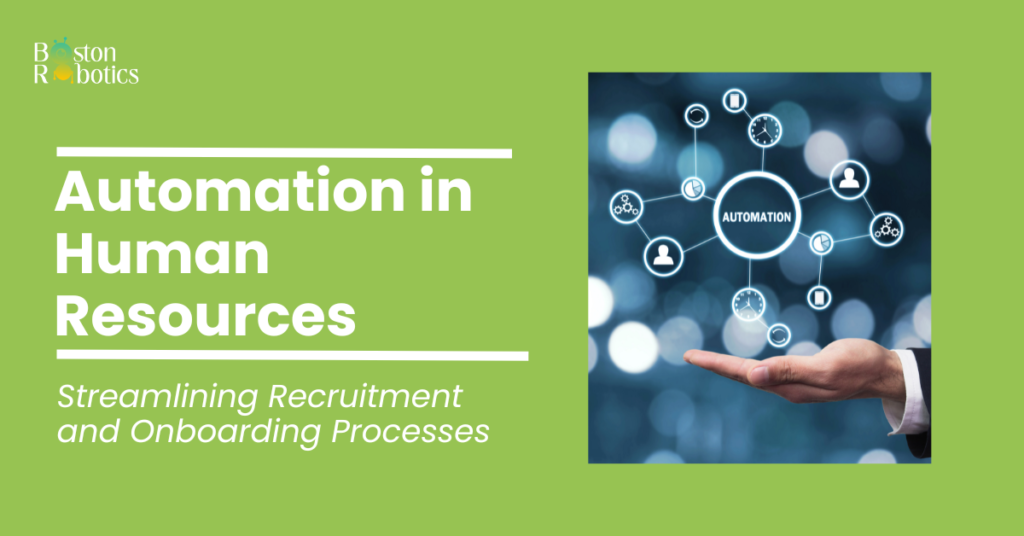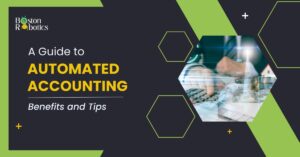Automation is changing the field of Human Resources (HR), and one area where it has had a significant effect is making hiring and bringing new employees on board easier. In this piece, we’ll look at how automation tools and technologies are changing HR workflows, allowing businesses to be more efficient, save money, and make the candidate and employee experience better overall.
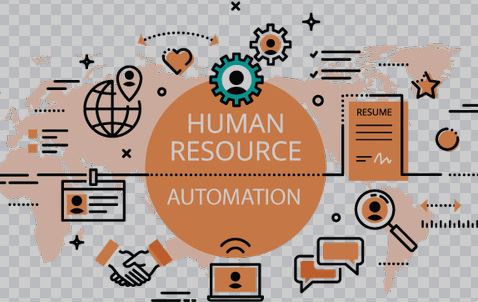
From automating the screening of resumes to speeding up the hiring process, we’ll talk about the pros, cons, and best ways to use automation in HR. In the digital age, HR workers can focus on strategic tasks and drive organizational success by using technology to improve people’s skills.
What is Human Resources Automation?
HR automation is the process of making the HR department more efficient by freeing workers from tedious manual tasks so they can focus on more complex tasks like making decisions and planning. By automating standard and repetitive HR tasks, companies can save money and time on HR planning and work that is done by hand.
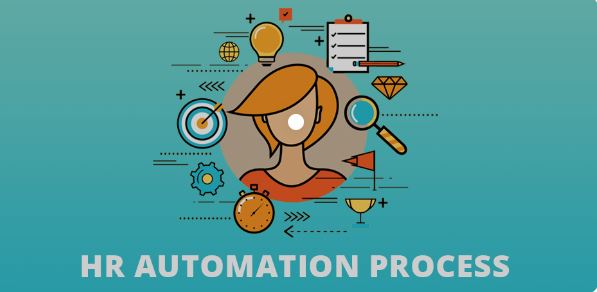
Why should I automate my human resources processes?
You might be asking why you should automate your HR department. Don’t worry, we cover everything you need to know about HR automation in this piece, from the beginning to the end. Below, we’ll talk about some pros and cons of automating HR.
There are a lot of good reasons to use HR technology to make your business run more smoothly. One of the major reasons is to give your human resource management team less manual work to do. Human resource workers have to do a lot of manual tasks that are done over and over again. These tasks can easily be turned into automated business processes. For example, payroll management, onboarding, offboarding, and performance management are all important business chores that can be done automatically with software.
Many companies don’t have big HR departments, which can make it hard for HR managers to keep going. By automating processes, you can help reduce the manual work your HR staff has to do.
You can also cut costs in your human resources department by automating HR processes. Most of the time, buying automation software is much cheaper than hiring more people. Instead, automate the process control that can be done. When you hire someone, you need a payment plan, perks, and help for the employee. With robotic process automation, all you need is a fee. If you automate processes in your company, you can cut the costs of your human resources staff by a large amount.
Benefits of HR Automation that Your Employees will Enjoy

Business process automation using robots and AI in HR can minimize errors and reduce the risk of human errors.
- AI automation helps eliminate biases in decision-making processes, ensuring fairness and equality.
- Automation solutions operate 24/7, providing uninterrupted service without time limitations or the need for breaks.
- External factors such as weather conditions or employee availability do not impact AI automation, leading to consistent and reliable processes.
- With automation handling repetitive and mundane tasks, HR professionals can focus on more strategic and value-added activities.
- Strategic HR tasks, such as organizational structure, employee relations, and planning, can receive more attention and expertise.
- HR automation empowers employees by giving them autonomy in managing their own HR-related tasks.
- Self-service tools enable employees to access information, download documents, and request time off without relying on HR team members.
- Employees can have faster access to their personal documentation, improving efficiency and reducing dependency on HR for routine tasks.
- HR automation allows HR professionals to dedicate more time to building relationships with employees and understanding their individual needs.
HR Automation’s Disadvantages
Are there drawbacks to HR automation? It varies, is the answer? Being up-to-date in HR can be hard in some ways. Make sure you choose the right software and technology for your business’s needs and processes. If your company isn’t careful, it could end up with multiple systems that store different kinds of info. When systems don’t talk to each other, organizations can end up with limited system capabilities, features they don’t need, and high prices.
HR automation: How to work more efficiently
Many businesses put a high priority on automating areas like sales and marketing because they can prove the return on investment with hard data. Even if automating HR doesn’t have a clear effect on your bottom line, there are still many benefits that make it worth it. Here are some of the most important benefits of automating your HR:

Improved productivity
The most important benefit of HR automation is that it helps your HR staff be more productive. By automating tasks that are done over and over again, their hands are freed up to do other jobs and responsibilities. This means that they can get more work done. HR technology not only helps your HR staff be more productive, but it also helps your whole company be more productive. This is because you can make more accurate hiring choices based on data, which makes sure you hire the best people.
Reduced staff turnover
Because HR is responsible for the well-being of employees, the work of your HR department has a direct effect on how many people leave your company. For example, almost 50% of Americans say they will leave their job after two mistakes on their paychecks. And when a lot of employees leave, it costs more to find new ones, since the average cost to replace an employee is $4,129.
Better ways to handle and protect data
Software that lets you store your data safely is one of the most important perks of automating HR. Especially if your HR automation tool lets you back up your data in the cloud, you can be sure that your data won’t get damaged or lost because of a natural disaster. Most importantly, no one else can get to or use your info without your permission.
HR automation makes it easy to handle data, in addition to making sure it is safe. Managing digital data is much easier than going through spreadsheets and files by hand. This is true for everything from storage to analysis to recovery.
shortened time to hire
Another big benefit of HR technology is that it cuts the time it takes to hire a new employee by a huge amount. This is because automation shortens the amount of time it takes to screen candidates, run background checks, onboard employees, and do many other chores related to finding and hiring a new employee. Taking less time also makes the application experience better, so you don’t miss out on the best people.
Accuracy and reliability
Human error is one of the biggest problems with HR jobs that are done by hand. If you do things by hand, it’s easy to have a flawed HR system. For example, there could be bias in the hiring process or employee files could be lost.
But HR technology gets rid of most mistakes. Not only that, but it also makes sure that all of your locations and methods are the same.
Scalability
One of the most important benefits of HR automation for recruitment firms is that it makes it easy to grow. Most repetitive jobs can be done automatically, giving you more time to take on more clients and hire more people.
Better cooperation between departments
HR is an important part of your business because it works with every other area. Running from one area to another by hand is no longer good enough. By automating your HR and connecting your HR automation tools to the tools of other areas, you can easily work with them.
But at the end of the day, organizing your HR processes will make your business more efficient, which will help your bottom line.
Despite all of these perks, though, many companies are still behind the HR transformation curve. When you use an HR automation strategy, you have an edge over your rivals because of this.
Popular HR Processes for Automation
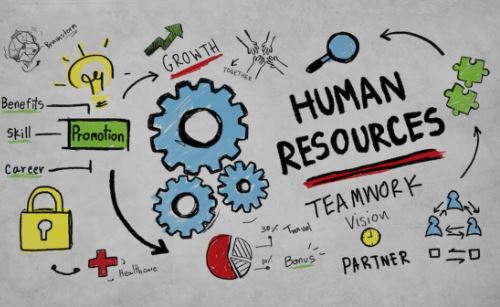
We’ve been discussing HR automation. HR staff uses what processes? Their best option?
HR Cloud has many HR technologies to automate critical procedures. Here are some.
Employee Onboarding
One of the most manual HR tasks is getting a new employee started. Proof documents, tool access, device requests, and more are involved. But the welcome app can take care of all of this for you.
Users can consult the staff onboarding app’s brief guide. This allows electronic document collection, the device sending without IT employees, and tool availability in hours, not weeks.
2. Timesheets for employees
Keeping track of timesheets by hand is, at the very least, inefficient. With a solution like Kissflow HR Cloud, you can use an automated timesheet app to track and handle employee timesheets. This makes the process faster and more accurate.
3. Leave Requests
Manually calculating and approving leaves is hard because HR staff has to check the leave balance, get a manager’s permission, and also record the leave so that payroll can be calculated. An automated leave management system makes it easy to process leave requests so they don’t get lost in a flood of emails.
4. How to manage performance
Performance management is an HR process that is always changing.It assesses and analyzes employee performance against company goals. Automated performance management software speeds up the process, eliminates bias, ensures proper conclusions, and makes it memorable for employers and employees.
5. Exit Interview
Exit interviews boost staff engagement. Paper-based, manual exit interviews are laborious and ineffective. Exit interviews can be automated to identify concerns and give actionable data to improve staff retention without sifting through paperwork.
Top 6 Features Every HR Automation Software Needs
Today’s HR systems are automated. Check the characteristics of automated HR software to see if it matches your HR operations. HR automation software must have six features:
- Actionable insights
Visual reports and dashboards speed decision-making.
- Omni-channel Access
Omni-channel access to HR process data on any device, anytime.
- Quick Integration
API connectors provide HR data synchronization.
4. Risk Mitigation
Audit trails and 360-degree visibility make all HR operations tamper-proof.
5. Automated Alerts
Automated alerts keep workers on track and on schedule.
6. Dynamic Workflow
Create customized, automated HR processes for every HR process.
Conclusion:
HR automation has transformed recruitment and onboarding, benefiting firms. HR teams may improve applicant and employee experiences by automating workflows. Automation streamlines resume screening, onboarding, and error reduction. It lets HR pros focus on strategy, partnerships, and organizational performance. Change opposition and ethical concerns must be addressed. Emerging technology and HR functions will benefit from HR automation. In the digital age, firms may optimize their HR procedures and maximize employee potential by combining automation with a human touch.
Editor’s Choice:
From Science Fiction to Accounting Fact: Boston Robotics’ Revolutionary Impact
Transform Your Accounting with Robotics Automation
Streamlining Your Business with Boston Robotics Process Automation
How Robotic Process Automation is Revolutionizing Public Accounting

